Scammers are aggressively pushing BariSlend — a so-called weight loss supplement—through slick Facebook ads featuring a mysterious “pink salt trick”. These ads lead to questionable sites like total-healthy.com, promising rapid, effortless slimming results. The marketing is full of flashy testimonials and unrealistic claims that should raise serious doubts.
The product’s hype relies heavily on fake success stories and dubious endorsements, including references to celebrities and media outlets that have no connection to BariSlend. There is zero credible evidence to back up these weight loss promises. Instead, the website triggers urgency with “Last bottles left” messages and confusing price packages designed to rush buyers into costly purchases.
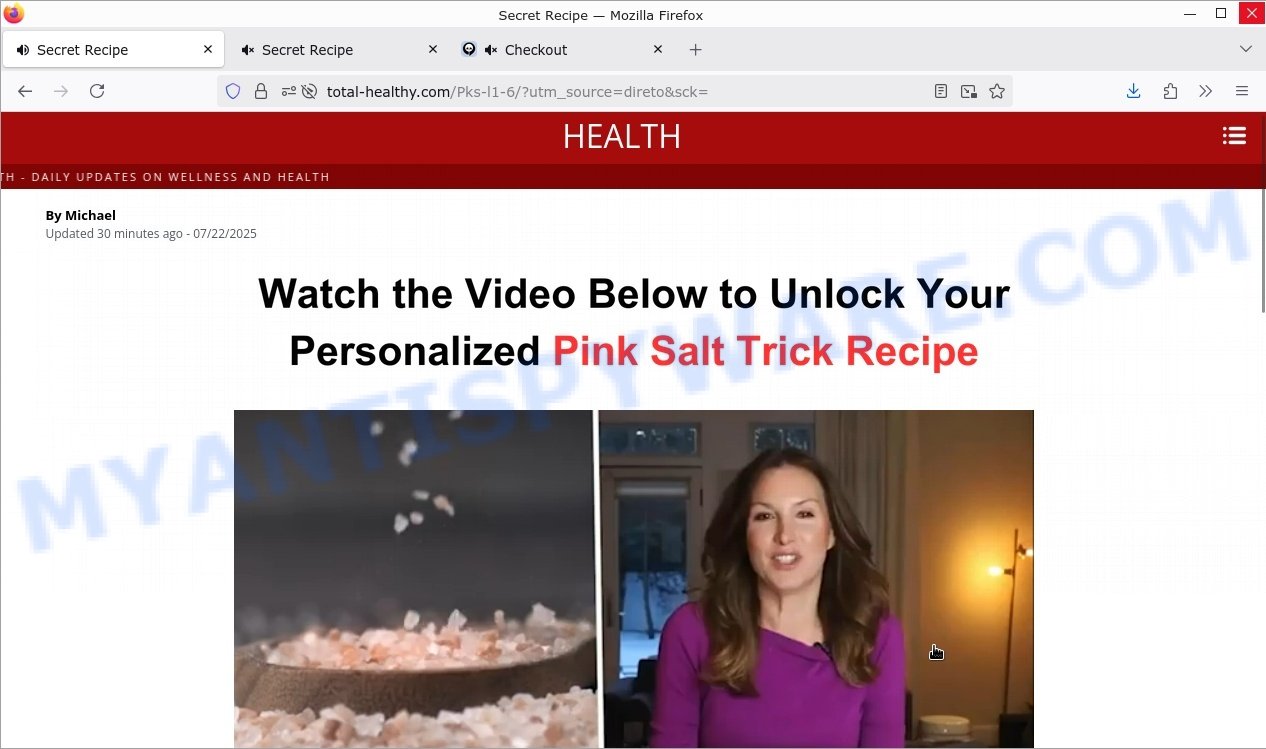
Moreover, the BariSlend site uses generic, unbranded supplement images and vague descriptions that don’t provide real details about ingredients or safety. Important info is often locked behind videos or buried deep in text, making it hard to verify claims independently. This secrecy is a classic red flag for scams trying to avoid scrutiny.
Customer reviews on third-party sites reveal common complaints like ineffective results, no response from support, and refusal to honor the 180-day “money-back guarantee”. Some report receiving different products than advertised or experiencing double charges. The company behind BariSlend operates under a different name (Cartpanda), further muddying the waters.
If you encounter BariSlend ads or emails, proceed with extreme caution. Don’t be tricked by flashy ads or “secret hacks”. Real weight loss requires proven methods and consultation with health professionals—not rushed online pitches from unknown sources. Always research products thoroughly and read unbiased reviews before spending your money.
💡 Heads-up: Similar Scams Are Everywhere. Barislend is not unique. It is one of many fake supplements, gadgets, and other schemes we expose in our Fact Checks section. All of them aim to grab your personal data or money. The people behind these scams run slick websites, spread bogus promo codes, and even pose as trusted brands or experts. Below are a few recent scams that follow the same playbook as Barislend: STDEI GLP 1, Google 5 Billionth Search, Slim Boost Tea, TaskPay, Qinux WaterBlitz.
Table of Contents
🚨 Is BariSlend ‘Pink Salt Trick’ a Scam?
BariSlend is aggressively promoted through deceptive Facebook and other social media ads, often using sensational “pink salt trick” videos to lure people searching for effortless weight loss solutions. The product’s marketing strategies exhibit common scam characteristics that prey on individuals hoping for quick fixes without verified results.
Key Red Flags:
- 🌐 Suspicious Promotional Channels: BariSlend ads appear via dubious Facebook profiles and clickbait ads linking to generic domains like
total-healthy.com, designed to mislead consumers with exaggerated weight loss claims. - ⭐ Fabricated Testimonials: The site features overly positive user reviews with repetitive positive comments and generic praise that cannot be independently verified, indicating these endorsements are likely fake or manipulated to build false trust.
- 🔒 Vague Product Information: Bottles shown lack clear branding or ingredient transparency. The website provides little to no verifiable details about BariSlend’s formulation, making it hard to trust or assess product safety.
- ⚠️ Exaggerated, Unrealistic Claims: The site promises rapid and dramatic weight loss with minimal effort by using a supposed “pink salt trick”, a narrative common in scams offering too-good-to-be-true results without credible scientific backing.
- 📉 Low-Quality Website & Urgency Tactics: The site employs poorly designed pages, fake media logos, countdown timers, and “last bottles left” warnings, creating false urgency to pressure visitors into hasty purchases.
- 👤 Lack of Transparency & Questionable Customer Service: Author credits are vague (“By Michael”) with no credentials. Customer reviews on external platforms report fraudulent charges, refusal to honor refunds, and poor customer support.
- 🔗 Misleading Pricing & Return Policies: While a “180-day money back guarantee” is advertised, multiple customer reports indicate the refund policy is not honored, and return instructions are often denied or ignored.
In summary, BariSlend exhibits numerous hallmarks of a scam product, including deceptive marketing, fabricated testimonials, aggressive sales tactics, lack of credible information, and reports of poor customer service. These factors strongly suggest that BariSlend is not a genuine or safe weight loss solution. Consumers are advised to avoid purchasing BariSlend and instead seek advice from qualified health professionals for effective and proven weight management methods.
😱 What to Do If Scammed
If you find yourself ensnared by the Barislend Scam, immediate action is crucial. Here’s what you should consider doing:
🛑 Stop Further Transactions
The first step is to halt any additional transactions that might be in process. Contact your bank or credit card provider and inform them that you’ve fallen victim to a scam. They can help by blocking the card or reversing any unauthorized transactions.
📞 Report the Fraud
File a report with your local police and provide all the available evidence, such as screenshots, emails, and website URLs. Additionally, report the scam to online portals like the Better Business Bureau (BBB) at www.bbb.org or the Federal Trade Commission (FTC) at reportfraud.ftc.gov. If you’re in another country, reach out to your national consumer protection agency.
💻 Take Screenshots
Before the scam website gets taken down or changes, make sure to capture screenshots of your transactions and communications. These can serve as evidence if you decide to pursue legal action.
⚖️ Consult Legal Advice
Speak to a legal advisor about your situation. While pursuing legal action may be time-consuming and costly, it could be a possible avenue for recovering your lost money.
📢 Share Your Experience
Use social media platforms to share your experience and warn others about the scam. Your story could prevent someone else from falling victim to the same or similar scams.
Summary Table
| Factor | Observations | Impact on Legitimacy |
|---|---|---|
| Product Description | Barislend is marketed as a weight loss supplement promoted through social media ads mentioning a “pink salt trick”. The product claims rapid weight loss and waist reduction without clear details on ingredients or scientific support. | Negative (Vague product info and unsupported claims) |
| Website and Domain | The sales page uses a generic and suspicious URL “total-healthy.com” without clear company branding. The site has urgent messages like “Last bottles left” to pressure quick purchases, and product bottles lack proper labeling. | Negative (Suspicious domain and use of pressure tactics) |
| Customer Reviews | The website shows many positive comments praising the product, but independent reviews are negative, reporting no effect, false advertising, unresponsive customer support, and refusal to honor refunds. | Negative (Fake testimonials on site and poor independent reviews) |
| Marketing Tactics | Ads use sensational phrases like “pink salt trick” to attract clicks and lead users to the site. The site requires watching a video to “unlock” info, which is a common method to collect data or engage further scams. | Negative (Misleading marketing and possible data collection tactics) |
| Price and Offers | Multiple purchase options with heavy discounts encourage buying in large amounts. Such upselling is typical for scam products aiming to get more money quickly. | Negative (Aggressive upselling and suspicious discount structure) |
| Refund Policy | Though advertised as having a 180-day money-back guarantee, customers report difficulty getting refunds and poor customer service responses. | Negative (Misleading refund promises and poor support) |
| Company Information | Contact details are minimal and linked to a third-party company Cartpanda. The product is not BBB accredited, and the business address corresponds to a shipping facility, not a verified manufacturer. | Negative (Lack of transparency and questionable company details) |
| Media Logos and Credibility | The site shows logos of major media outlets like CNN and FOX without verification or links, which is a common fake tactic to appear trustworthy. | Negative (False use of media logos to mislead users) |
| Site Design and Content | The website has a generic and unprofessional look with limited information about the product or company. Author information is incomplete, and text is repetitive, suggesting low effort and possible scam. | Negative (Poor website quality and lack of professionalism) |
Conclusion
The BariSlend Weight Loss Supplement is a scam that preys on hopeful consumers with fake reviews, misleading “pink salt trick” ads promoted aggressively on Facebook and social media, and deceptive marketing tactics designed to create a false sense of trust and legitimacy. The product’s website, found at “total-healthy.com,” uses vague branding, unverified media logos, and urgent messages like “Last bottles left” to pressure visitors into making impulsive purchases.
Customer testimonials are fabricated, and the product labels lack proper branding or ingredient transparency. Several reported complaints highlight fraudulent charges, refusal to honor the so-called 180-day money-back guarantee, and ineffective or potentially harmful ingredients. Furthermore, the site deploys clickbait tactics like requiring users to watch videos to access “secret” weight loss tricks, which serve only to collect user information or funnel buyers into costly, upsold packages.
Signs such as suspicious domain names, lack of credible author information, sensational claims without scientific backing, and a generic website layout reinforce that BariSlend is misleading at best and dangerous at worst.
Bottom Line: Avoid BariSlend and any related products promoted via the “pink salt trick” ads or similar scams. Always verify the credibility of health supplements through trusted sources and be wary of offers that rely on fake endorsements, pressure tactics, and unverifiable claims. If an offer sounds too good to be true, it almost certainly is. Stay vigilant and do thorough research before investing in any health or weight loss product.
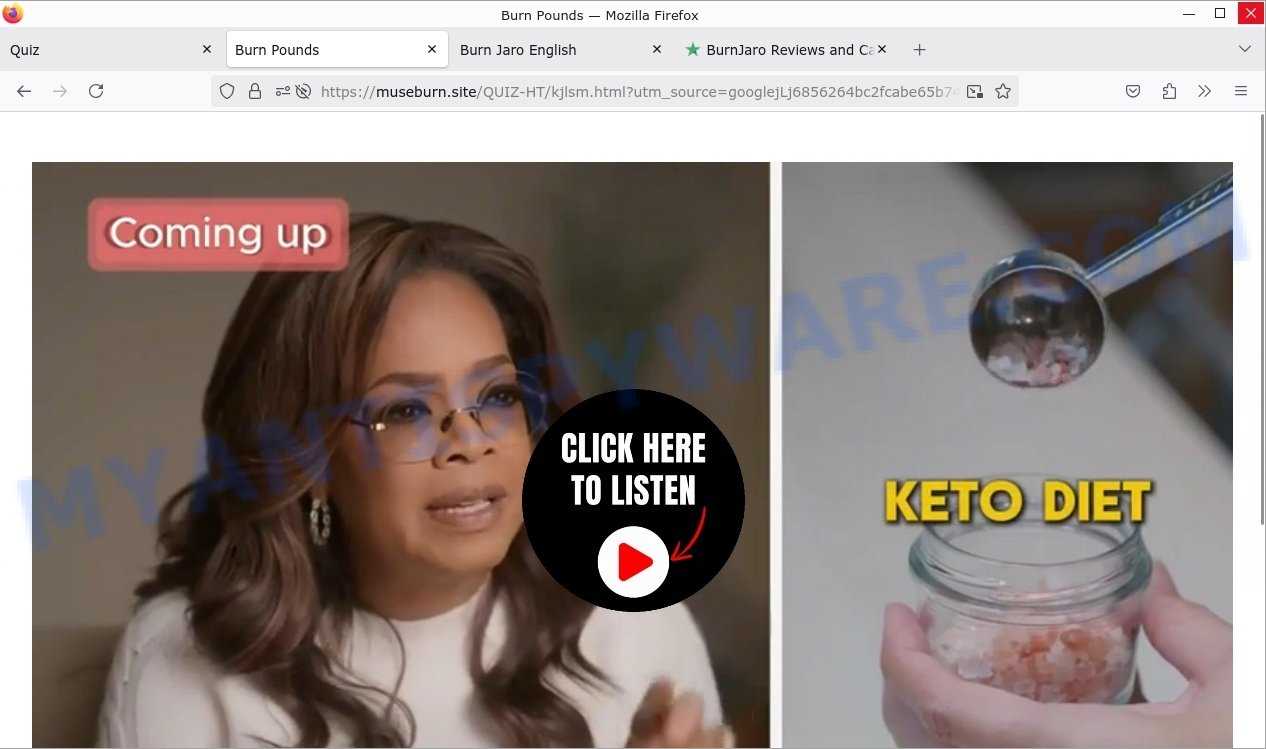
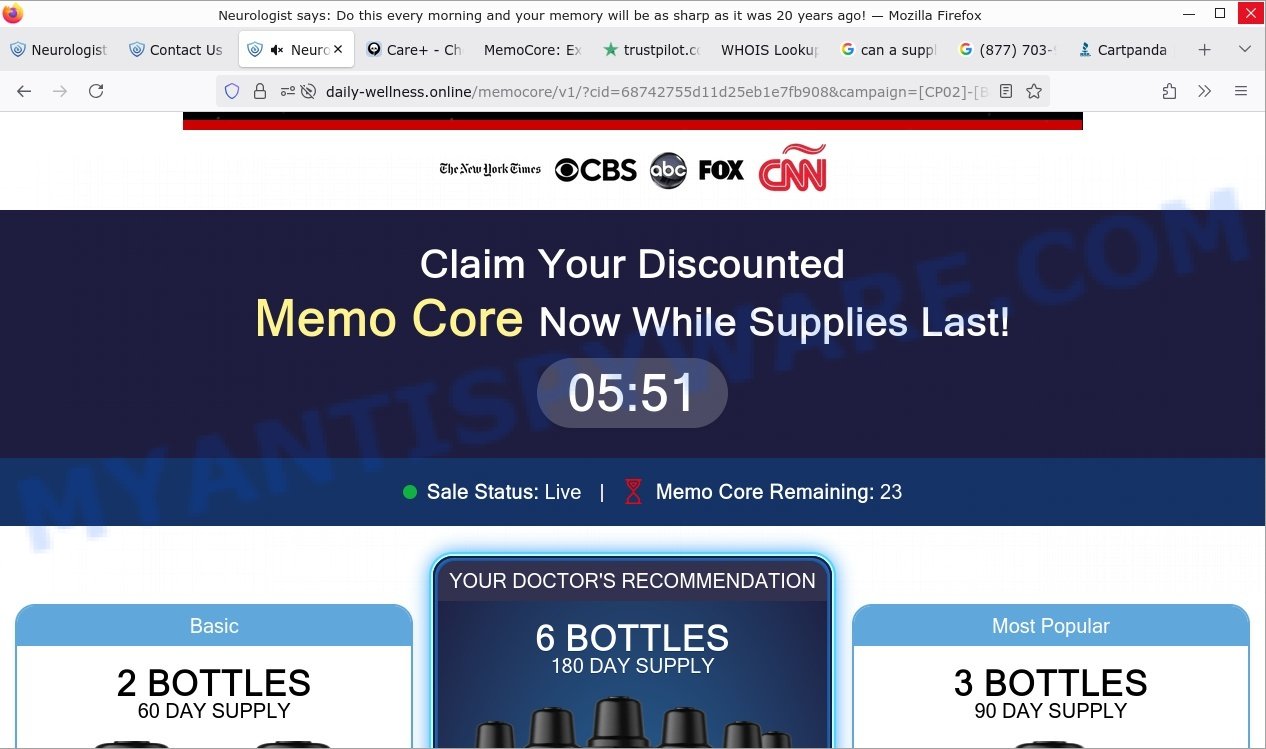
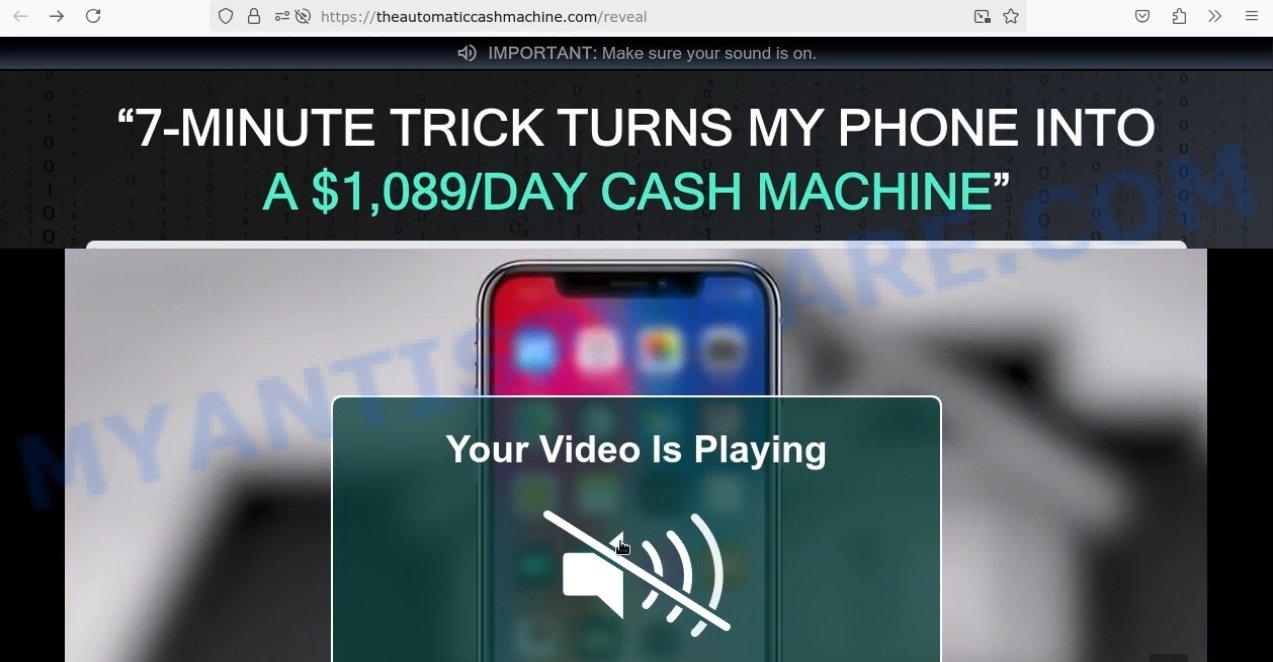
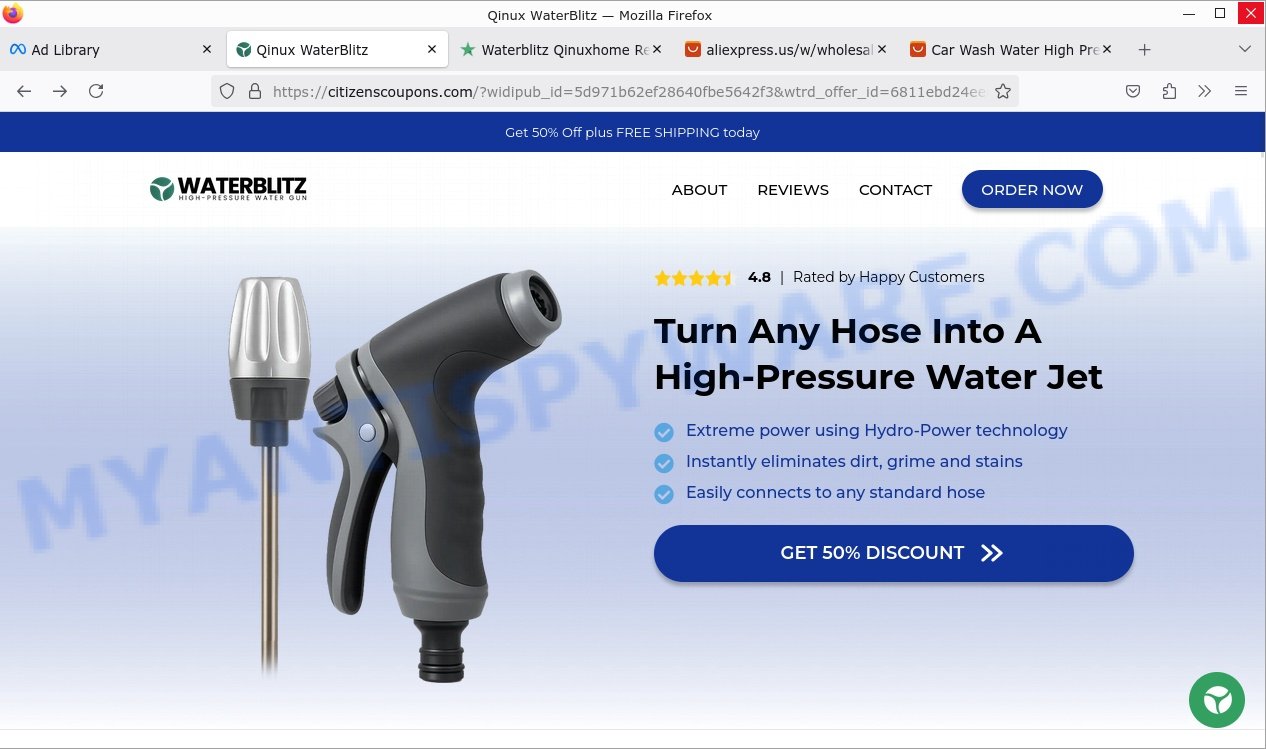

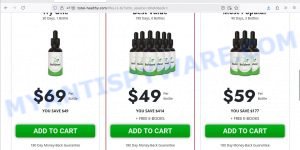
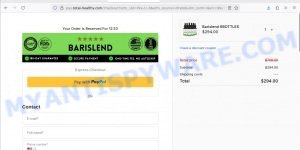














Cartpanda is linked to other weight loss scams! I know because I fell for 2 different ones; both Cartpanda without receiving full refunds. Cartpanda must have received a considerable amount of money because they appear on so many Facebook page ads. If you see ads, look to see whos really behind the scams. I’m certain you will find Cartpanda!